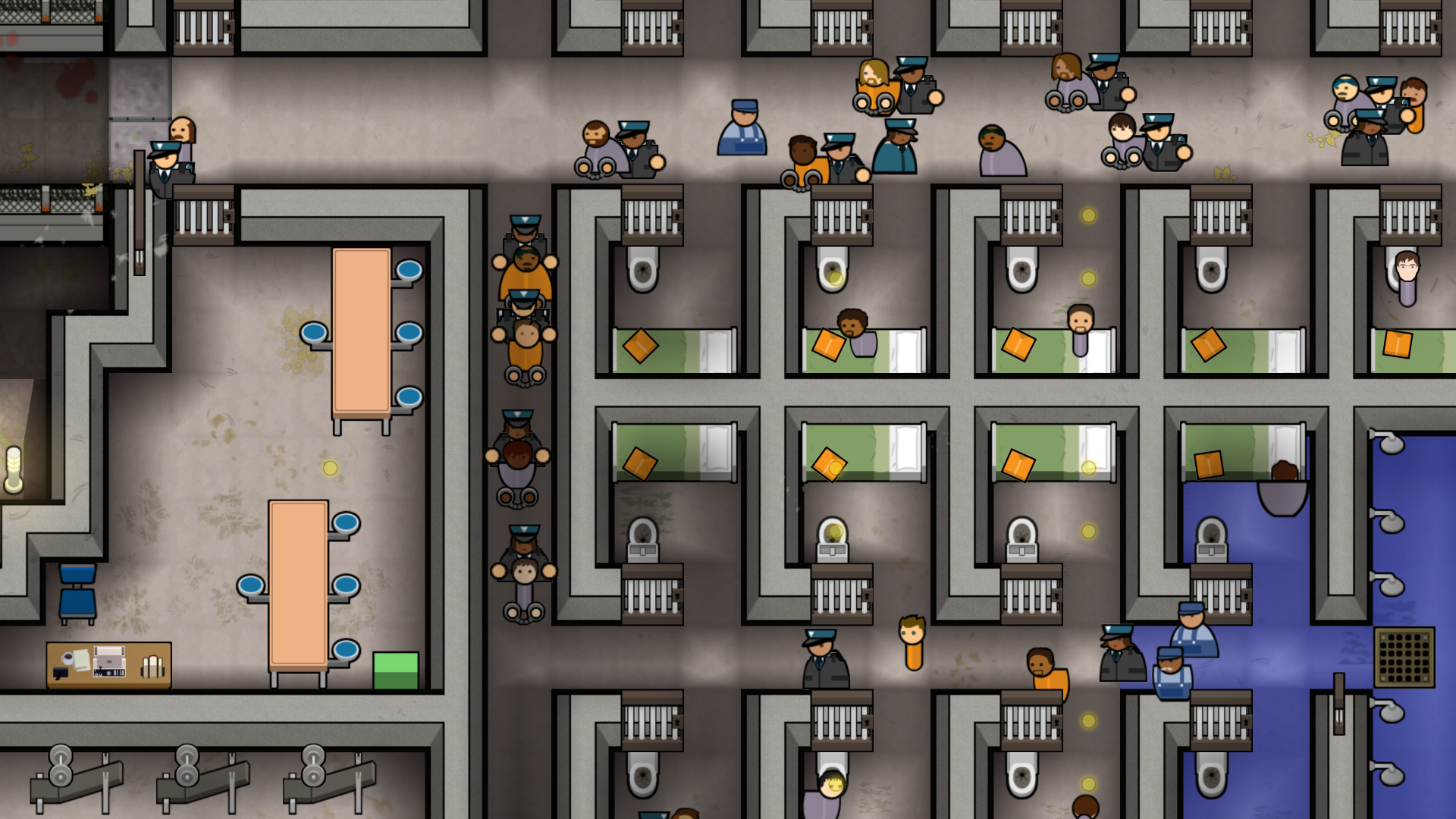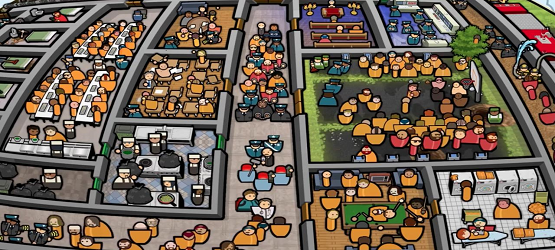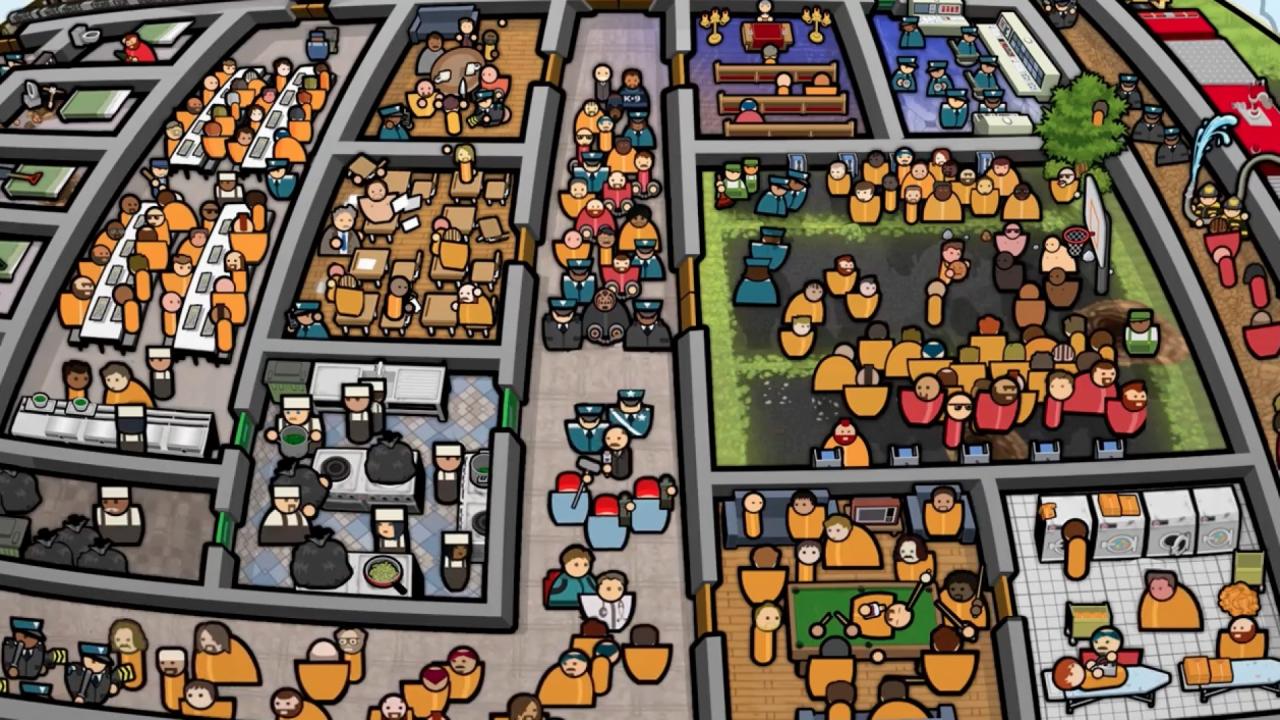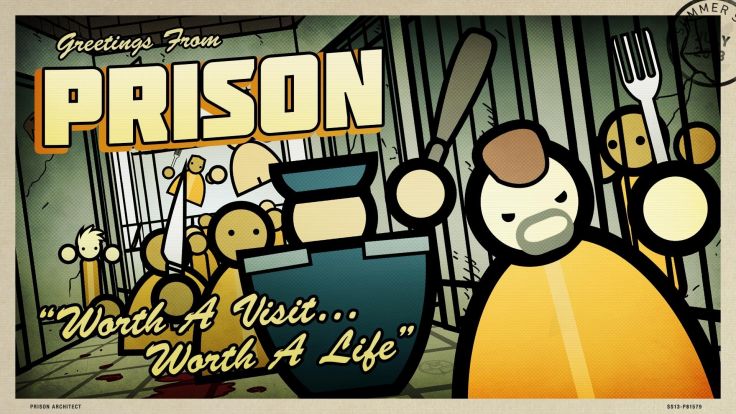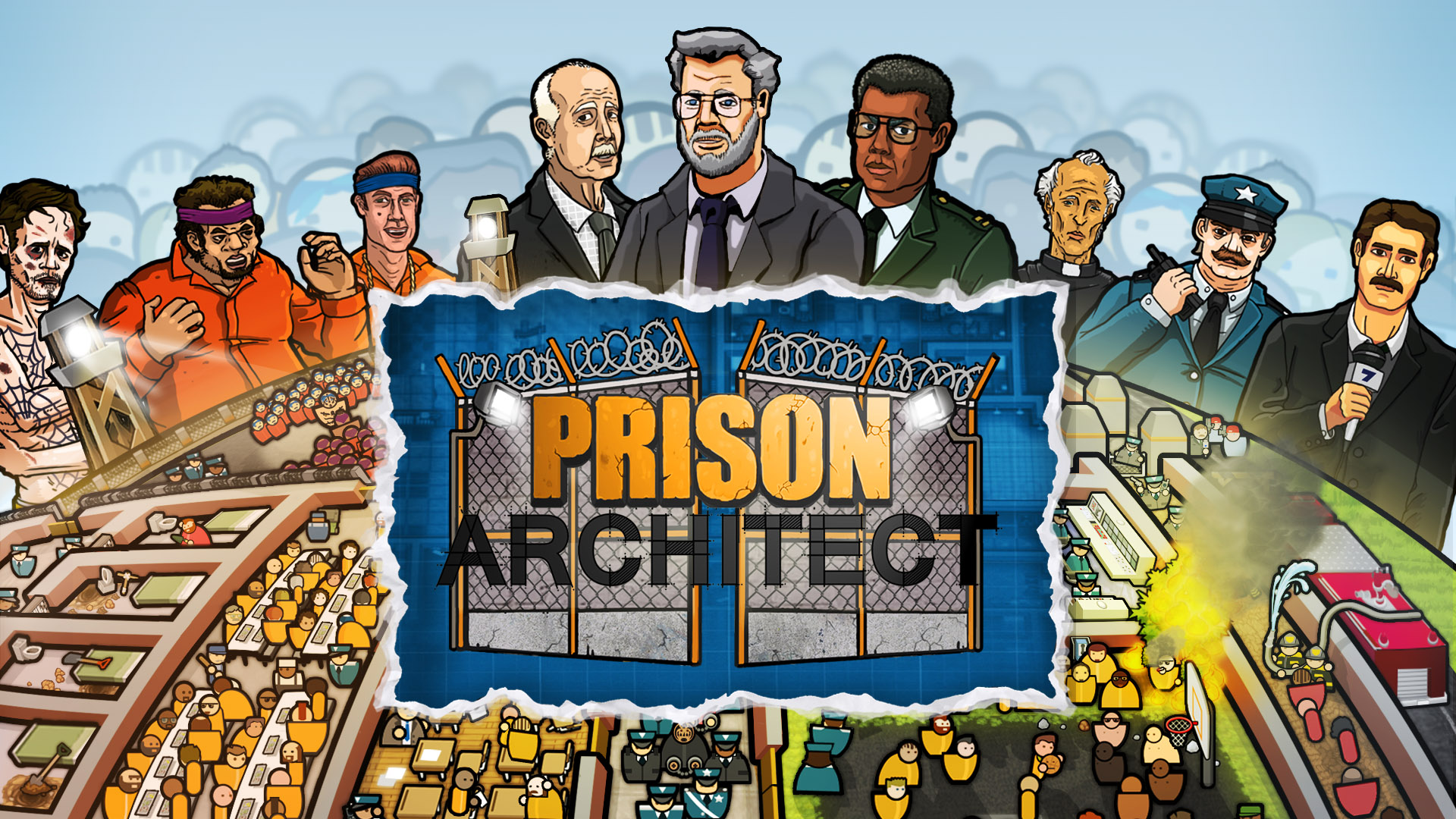When Prison Architect was announced in 2011, I’m sure more than a few people felt skeptical. A building simulation about private prisons, after all, doesn’t exactly sound tailor-made for a fun time. But with a dark sense of humor and a solid, varied set of mechanics, it didn’t take long for Introversion Software’s quirky builder to gain momentum: by 2012, the developers were able to release a crowdfunded pre-alpha version that eventually sold over a million copies and made more than $10 million in sales. Now, with the small team at Double Eleven working on a PS4 port, there is sure to be more skepticism in the game’s future. You might wonder how the point-and-click mechanics of the original version will translate to a home console, for example, or why exactly you should consider playing a game about prisons in the first place. Fear not — we spoke with Double Eleven’s Gareth Wright, who served as lead designer on the project, and got the answers to what are hopefully the most burning questions on your mind.
Check out the interview below!
PlayStation LifeStyle: What are the biggest challenges of taking a game like Prison Architect and bringing it from a mouse-and-keyboard-centric PC environment to a controller based console platform?
Gareth Wright: By far the biggest challenge has been the UI design and the sheer amount of UIs required for a game such as this. The freedom of the game means that there are a lot of things you can do at any one time, from basic stuff such as building walls and hiring staff, to more advanced stuff such as tapping phones and setting up CCTV. Each one requires a bespoke UI.
Aside from creating a UI style on console that complements the in-game artwork, the challenge comes when you know that players will want the freedom to do what they want, when they want, but at the same time they also want a minimalist HUD without every option cluttering the screen at once.
We first grouped everything the player can do into 4 main areas; Construction, Emergencies, Reports and Prison Running, each immediately accessible via a directional press on your D-pad. From there we went about designing each UI and easy ways to navigate between them, to ensure that anything the player wanted to do was only a couple of button presses away. With the addition of new console features, certain operations are now faster than they would be with a mouse. A lot of focus was placed on the construction component of PA in particular, something every player will do a lot of. To provide examples of some of these console enhancements;
Players can now build quick rooms such as cells, canteens, showers and kitchens instantly. Where previously they would need to lay the foundations, flooring, walls, doors and applicable furniture separately one at a time, this can now be done in one go with the range of pre-fab style rooms we’ve designed for console.
For the first time furniture and objects purchased and added earlier can be re-positioned and moved at any time, with one button. This too has made a big difference to the time players spend making alterations, as before they would need to demolish a bed for example, get a worker to collect the trash and then buy and place a new bed, each action as a separate operation.
The new quick-demolish console feature allows walls or entire areas to be bulldozed using the controller’s shoulder button. Previously the player would need to open a demolition tab and then find the right option.
We’ve made hundreds of these improvements and the sum of all is that players see it is a game we’ve made for console.
To complement a complete reimagining of the game’s UI, we had to create a control-scheme that felt console friendly too and allowed players to have both complete freedom to view their prison and move the camera, provide quick access to the UI, and introduce the handy feature of being able to slow down or speed up time whenever you need. We felt that players would want to pause or slow down time to deal with emergencies, and then speed up time to get their construction jobs completed.
PSLS: What are the benefits of having launched on the PC first and what have you learned that’s being implemented into the PS4 release?
Gareth: We were fortunate in that we could learn from Introversion and the way Prison Architect had evolved throughout its development for PC, meaning that the hard work in relation to building the prison from the ground up was done. That said, we still wanted to put our own touch on it and alongside hundreds of tweaks and game improvements, we introduced new areas such as World of Wardens (WoW) to the console community.
WoW mode is a way to share any of your created prisons with friends and players around the world. It’s a key feature we really wanted to get in and we know how popular sharing prison creations has been on PC. On PS4 I feel WoW will appeal to many different styles of player; some will want to show off their awesome designs and gain community popularity as credible architects, newcomers may want some inspiration or enjoy downloading a pre-built working prison and jumping straight in. Any downloaded WoW prisons can be changed and expanded to make them your own. WoW mode will allow players to manage their own shared prisons, rate, and also search for a specific prison name or player creator.
PSLS: Do you hope that introducing Prison Architect to PS4 players will open the doors for other builder and sim types of games that are less common on consoles?
Gareth: I really hope so, after all it only takes one! I believe there will be some people who will want to play for the obvious construction and management elements of the game and the uniqueness that brings to console but there’s a lot more to PA. It’s really a game about players being able to experiment with the themes of incarceration, crime and punishment. We hope that if people have an interest there the game will receive at least a second look.
Our decision to bring the game to console really began with that understanding. If the game was a very successful PC game about managing villagers in a forest, that probably would have been the end of the journey. Those broad themes exist in pop culture and it’s our hope that it’s enough to get people at least looking past the obvious fact that it does not look like an FPS, third person shooter or sports game that they may be accustomed to.
PSLS: What would you say to PS4 players who may be apprehensive about the control scheme of a builder/sim-type game on a home console, which can often be finicky and/or less precise?
Gareth: For people who have never played this type of game on console I can appreciate it may seem unfamiliar, which I believe is the main source of apprehension. Games are always going to evolve and present players with different ways to control them; as long as it’s intuitive and transparent, it just becomes something that needs to be learned. At that point I think the argument of less precision becomes less relevant and it’s more a question of whether you are actually enjoying the game. I would say the same would hold true for people playing FPSs on PC where you can (in the main) aim quicker and more precisely. Players have clearly adapted and become accustomed to the control schemes.
The control scheme took many people many months to make it feel intuitive. For example in the PC game when building you can place any object in any room at any time, in our PS4 edition when you’re hovering over an office room and plan to build, your main selection of furniture will only be the things that are required in an office. If you’ve missed an object required for a room (for example a Washing Machine in the Laundry), the game will tell you. Such enhancements sound simple but there’s far less navigating, considering and reading for the player, which promotes a much quicker and more intuitive experience. We’ve made 100s of improvements like this in the PS4 game so that it feels at home.
PSLS: Simulation games have obviously allowed players to build and watch over many different things in the past (cities, theme parks, etc.) but private prisons don’t come to mind as an obviously “enjoyable” thing to construct. Was there a specific niche you thought you’d be tapping into, or does Prison Architect really make incarceration fun for everyone?
Gareth: It’s true that PA is not your average build and manage type game, but therein lies its appeal and originality. In some ways it’s a bit more grown-up, with a design that’s deliberately more gritty and grounded in reality, as opposed to being far-fetched and cute. The art style is designed to draw you in with its charm, but PA is a bit more of a visceral game. You’re not managing happy villagers in an enchanted forest, these are often violent inmates and notorious gang members who will look to take over your prison. As you go deeper into the game, you’ll be dealing with death row prisoners, contraband control, protecting your snitches from getting shanked, and deciding for yourself how brutal or how comfortable a prison you want to run.
For me that’s really cool. I personally became a backer of the original Prison Architect after seeing it for the first time at Rezzed a few years back, way before we partnered with Introversion. Before knowing exactly how it would play I saw is as a modern take on the classic Bullfrog games we all loved, and in a setting (prisons) which would provide a ton of possibilities. Can I run a reform program? Yes. Can I buy sniffer dogs and armed guards? Yes. Will the prisoners dig tunnels behind their toilets? Yes. Can I choose the quality of prison food? Yes. Can I put prisoners to work in my prison? Yes… The amount of choice and depth is pretty impressive.
Your prison is your town and the inmates are your villagers, but with the twist that these guys never really want to be there and are often very unpredictable. If they can’t plan an escape, they’ll be trying to smuggle in contraband, riot with your guards, and extort cash from other prisoners. You’ll need to build and expand a prison that fits their needs. How much you care about their needs and how brutal of a prison you want to build is entirely up to you.
PA has been incredibly popular on PC, and now we want to let console gamers enjoy it. It’ll play, feel and look like a console game.
PSLS: In a similar vein, prisons are not something the average person has access to (we hope). How did the team go about researching what sort of buildable elements should go into a penitentiary?
Gareth: It was never the intention to make an accurate simulation of prison life. We wanted to explore some of the themes surrounding incarceration and crime and punishment, but our inspiration was taken more from prison fiction than the actual reality of life inside.
We watched a lot of classic prison films and TV – Shawshank, Green Mile, Oz, Prison Break, Orange Is The New Black, etc. and that provided lots of inspiration and ideas. That said there are lots of great documentaries about prisons online as well as first hand accounts written by prisoners. We also had several prison officers and even a few ex-cons reach out to us during Prison Architect‘s development and we incorporated their suggestions and ideas where appropriate.
PSLS: Do you think players will come away from the game with a different feeling about prisons than before they start playing?
Gareth: I think it would be hard not to, to be honest. Public opinion is divided as to whether prisons are too harsh or not harsh enough, so we wanted to create a game for PS4 where players could touch on that and explore it for themselves. The idea was to create a game where people had a chance to experience a simulated prison management system and left every decision – big and small – to the player. Every miniscule detail is in the player’s control and directly affects the behaviour of their prisoners, be that to their credit or detriment.
Prison Architect definitely has the potential to change the way players perceive both the prison system and the prisoners within those four walls. It introduces the player to the complex level of thought and attention to detail required to run a prison; every single decision has consequences that a player won’t necessarily be able to predict.
Thank you so much to Double Eleven for taking the time to answer our questions. If you’re interested in reading more about Prison Architect, head on over to the official website. The game is currently scheduled to be released in the second quarter of 2016.
Prison Architect PS4 Screenshots
-
Back to Your Cells
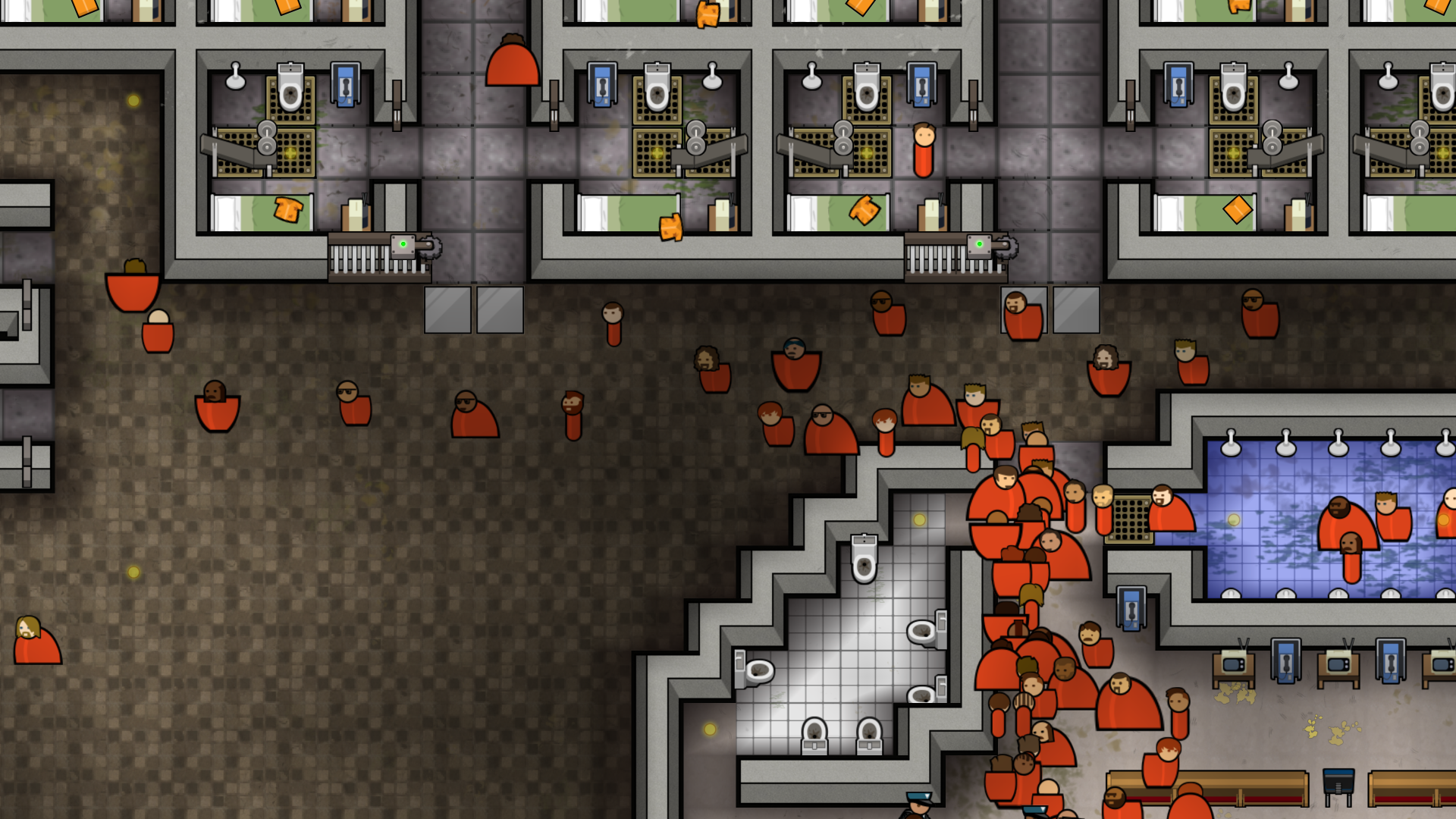
-
Guards Breaking A Fight
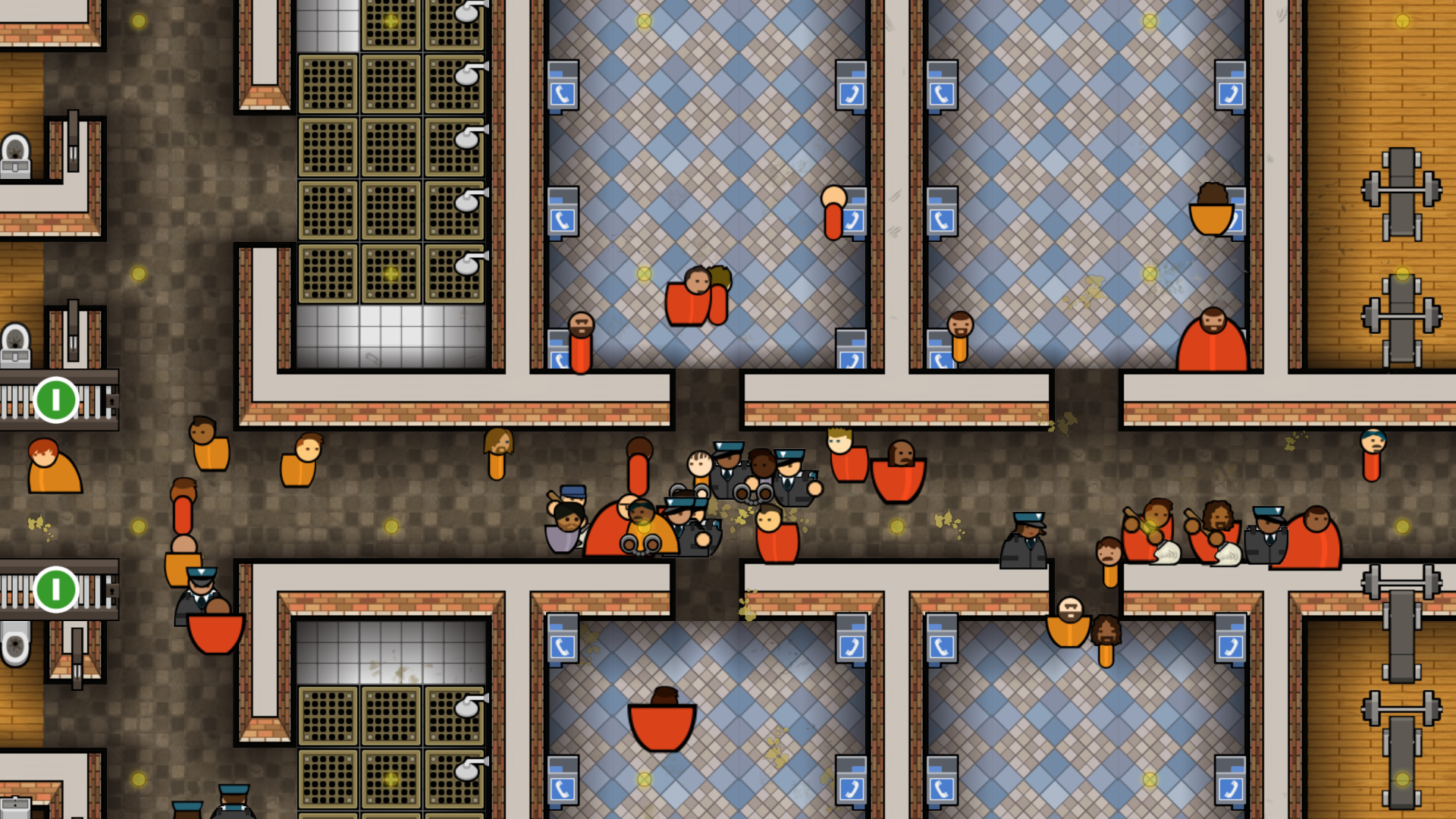
-
New Prisoners Arriving 01
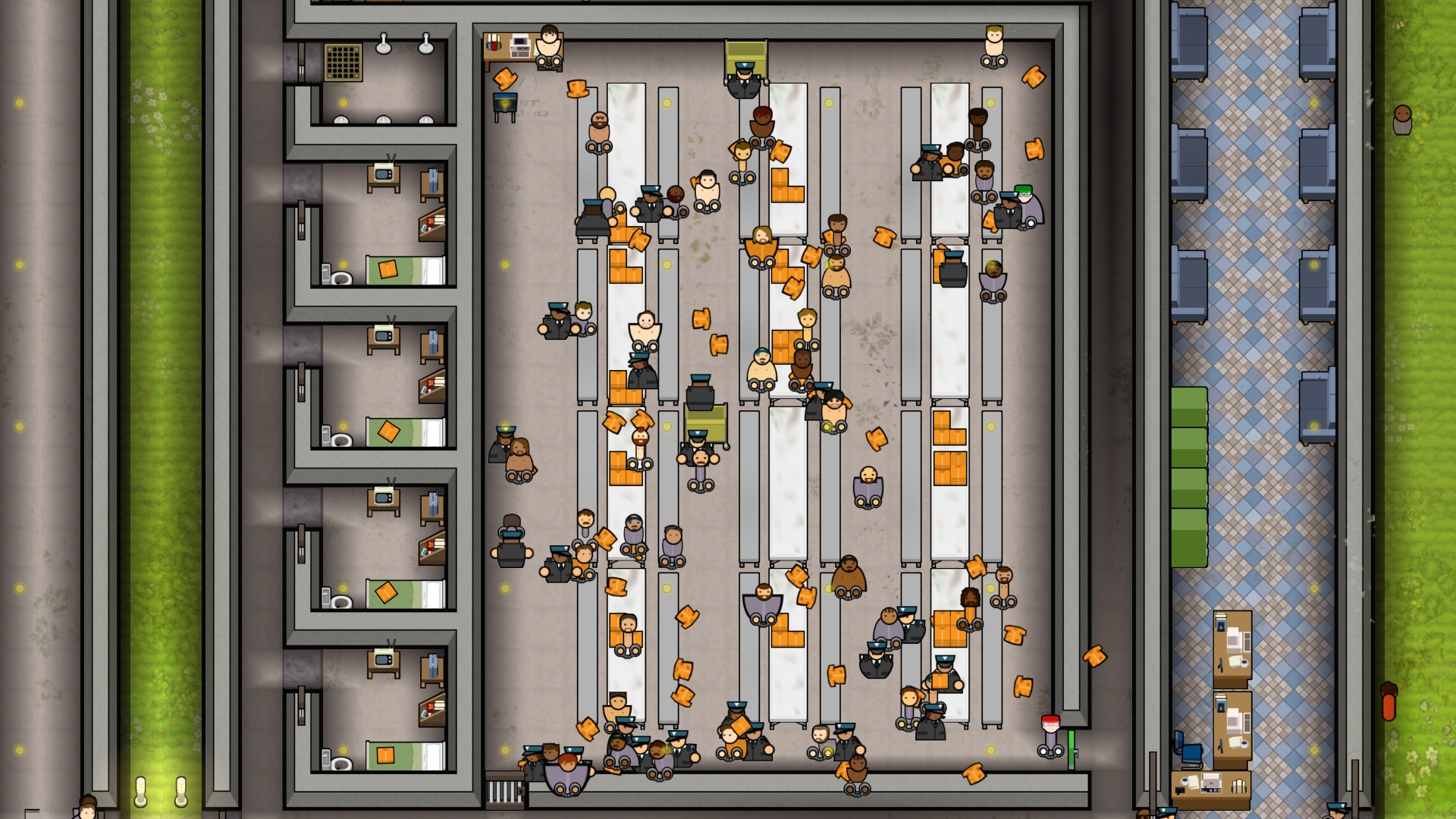
-
New Prisoners Arriving 02
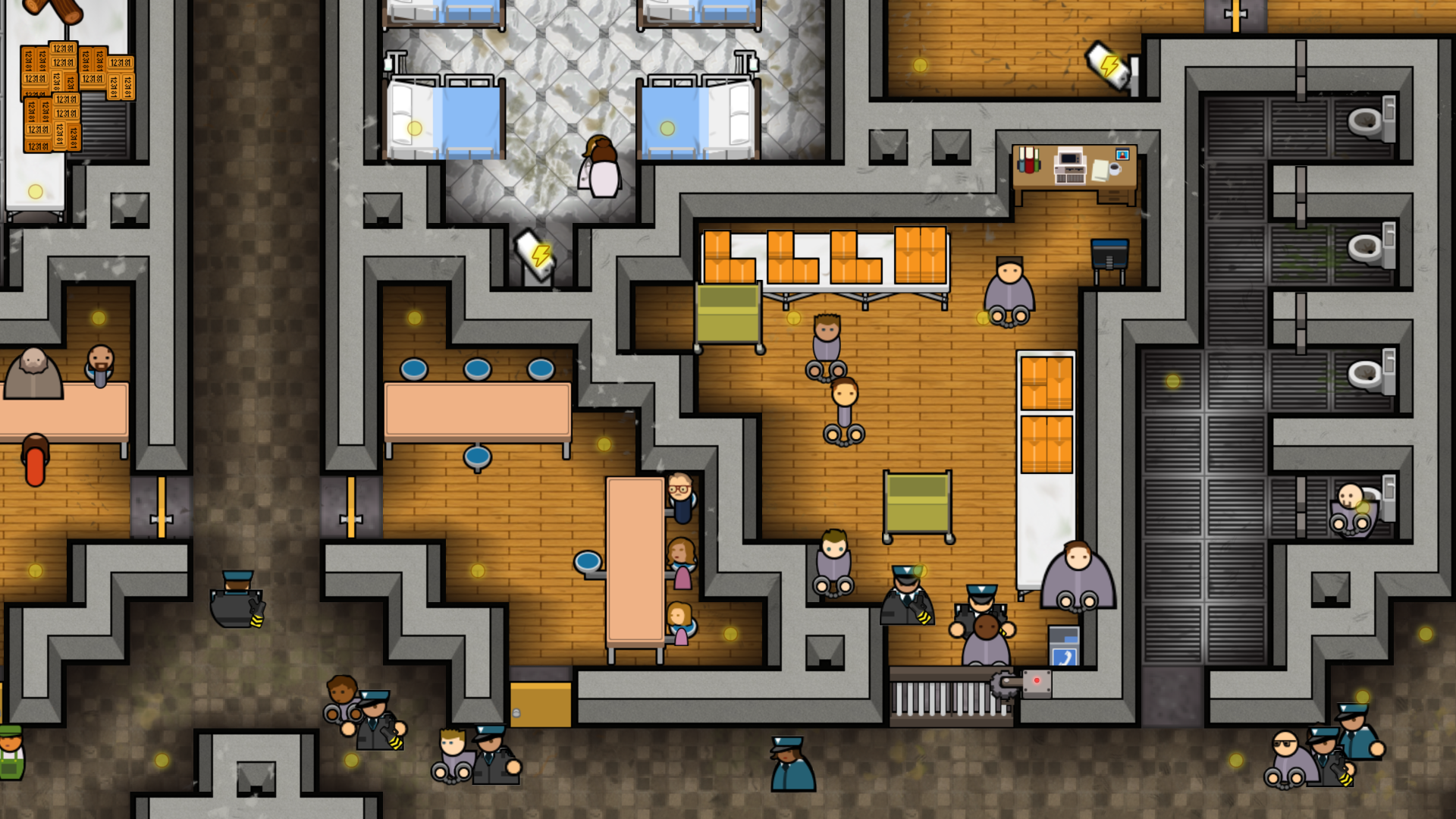
-
Prep for Dinner
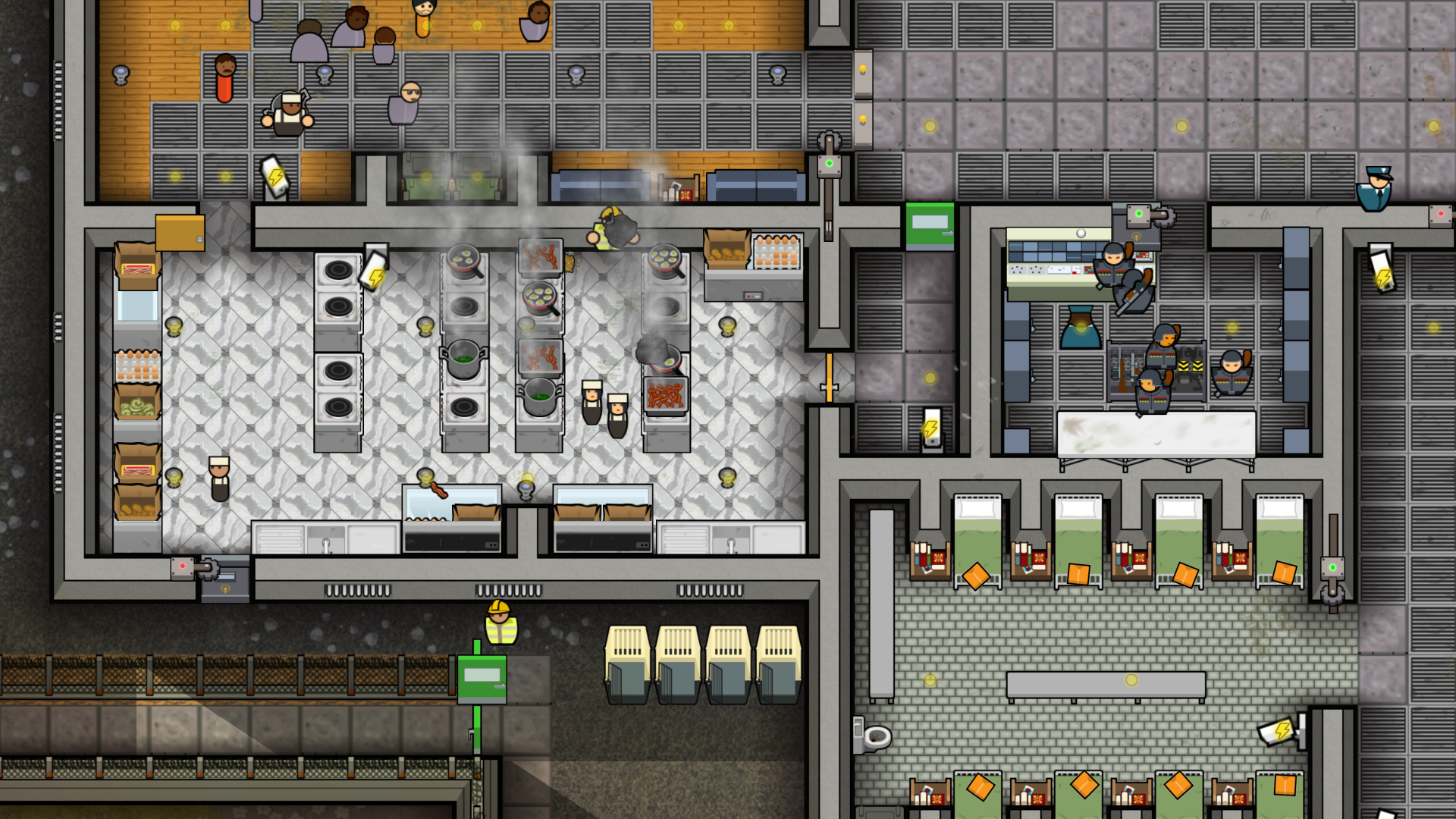
-
Prisoners Taken to Cells
